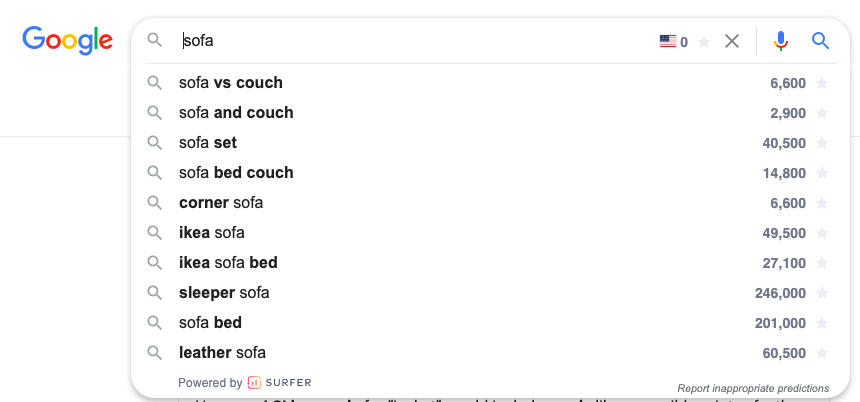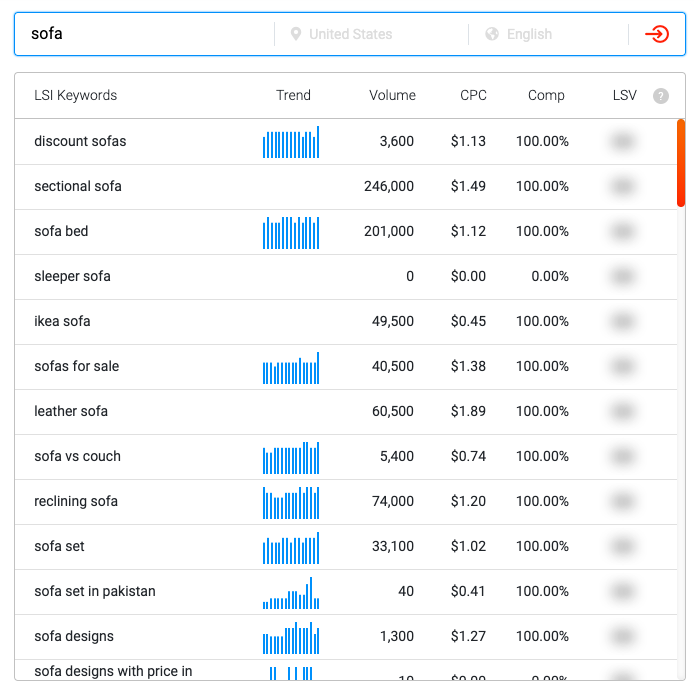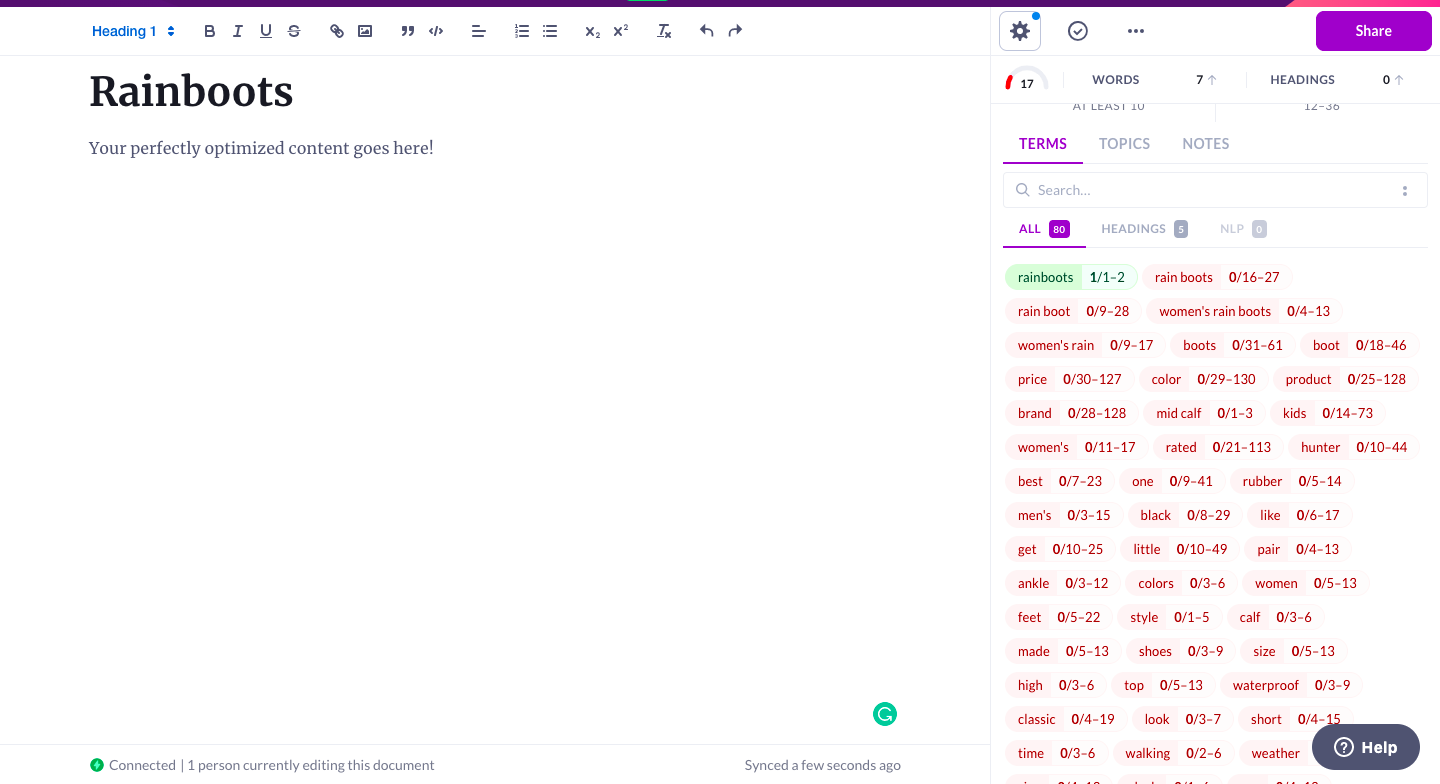Posted by JessicaFoster
The written content on your website serves to not only inform and entertain readers, but also to grab the attention of search engines to improve your organic rankings.
And while using SEO keywords in your content can help you get found by users, focusing solely on keyword density doesn’t cut it when it comes to creating SEO-friendly, reader-focused content.
This is where LSI keywords come in.
LSI keywords serve to add context to your content, making it easier to understand by search engines and readers alike. Want to write content that ranks and wows your readers? Learn how to use LSI keywords the right way.
What are LSI keywords?
Latent Semantic Indexing (LSI) keywords are terms that are conceptually related to the main keyword you’re targeting in your content. They help provide context to your content, making it easier for readers and search engines to understand what your content is about.
Latent semantic analysis
LSI keywords are based on the concept of latent semantic analysis, which is a technique for understanding natural language processing. In other words, it analyzes the relationship between one word and another in order to make sense of the overall content.
Search engine algorithms use latent semantic analysis to understand web content and ultimately determine what content best fits what the user is actually searching for when they use a certain keyword in their search.
Why are LSI keywords important for SEO?
The use of LSI keywords in your content helps search engines understand your content and therefore makes it easier for search engines to match your content to what users are searching for.
Exact keyword usage is less important than whether your overall content fits the user’s search query and the intention behind their search. After all, the goal of search engines is to showcase content that best matches what users are searching for and actually want to read.
LSI keywords are not synonyms
Using synonyms in your content can help add context to your content, but these are not the same as LSI keywords. For example, a synonym for the word “sofa” could be “couch”, but some LSI keywords for “couch” would be terms like “leather”, “comfortable”, “sleeper”, and “sectional”.
When users search for products, services, or information online, they are likely to add modifiers to their main search term in order to refine their search. A user might type something like “red leather sofa” or “large sleeper sofa”. These phrases still contain the primary keyword “sofa”, but with the addition of semantically-related terms.
How to find LSI keywords to use in your content
One of the best ways to find LSI keywords is to put yourself in the mind of someone who is searching for your primary keyword. What other details might they be searching for? What terms might they use to modify their search?
Doing a bit of brainstorming can help set your LSI keyword research off on the right track. Then, you can use a few of the methods below to identify additional LSI keywords, phrases, and modifiers to use in your content.
Google autocomplete
Use Google to search for your target keyword. In most cases, Google’s autocomplete feature will fill the search box with semantically-related terms and/or related keywords.
For the keyword “sofa”, we can see some related keywords (like “sofa vs couch”) as well as LSI keywords like “sofa [bed]”, “[corner] sofa”, and ‘[leather] sofa”.

Competitor analysis
Search for your target keyword and click on the first few competing pages or articles that rank highest in the search results. You can then use the find function to search the content for your primary keyword and identify LSI keywords that bookend that key term.
For example, a search for “digital marketing services” may yield several competitor service pages. You can then visit these pages, find the phrase “digital marketing services”, and see what semantically-related keywords are tied in with your target keyword.
Some examples might include:
- “Customizable”
- “Full-service”
- “Results-driven”
- “Comprehensive”
- “Custom”
- “Campaigns”
- “Agency”
- “Targeted”
- “Effective”
You can later use these LSI keywords in your own content to add context and help search engines understand the types of services (or products) you offer.
LSI keyword tools
If conducting manual LSI keyword research isn’t your forte, you can also use designated LSI keyword tools. Tools like LSIGraph and UberSuggest are both options that enable you to find semantic keywords and related keywords to use in your content.
LSIGraph is a free LSI keyword tool that helps you “Generate LSI keywords Google loves”. Simply search for your target keyword and LSIGraph will come up with a list of terms you can consider using in your content.

In the image above, you can see how LSIGraph searched its database to come up with a slew of LSI keywords. Some examples include: “[reclining] sofa”, “sofa [designs]”, and “[discount] sofas”.
Content optimization tools
Some on-page optimization tools include LSI keyword analysis and suggestions directly within the content editor.
Surfer SEO is one tool that provides immediate LSI keyword recommendations for you to use in your content and analyzes the keyword density of your content in real-time.

Here we see that Surfer SEO makes additional keyword suggestions related to the primary term “rainboots”. These LSI keywords include: “little”, “pair”, “waterproof”, “hunter”, “rubber”, “men’s”, and so on.
Using LSI keywords to improve SEO
You can use any or all of the LSI keywords you identified during your research as long as they are applicable to the topic you are writing about and add value to your content. Using LSI keywords can help beef up your content, but not all of the terms you identify will relate to what you are writing about.
For example, if you sell women’s rain boots, including LSI terms like “men’s” or “masculine” may not tie in to what you’re offering. Use your best judgment in determining which terms should be included in your content.
In terms of using LSI keywords throughout your content, here are a few places you can add in these keywords to improve your SEO:
- Title tags
- Image alt text
- Body content
- H2 or H3 subheadings
- H1 heading
- Meta description
LSI keywords made simple
Identifying and using LSI keywords is made simple when you take a moment to consider what your target audience is searching for. They aren’t just searching for your primary keyword, but are likely using semantically-related terms to refine their search and find the exact service, product, or information they are searching for.
You can also use data-driven keyword research and content optimization tools to identify LSI keywords that are showing up in other high-ranking articles and web pages. Use these terms in your own content to improve your on-page SEO and attract more users to your website.
Sign up for The Moz Top 10, a semimonthly mailer updating you on the top ten hottest pieces of SEO news, tips, and rad links uncovered by the Moz team. Think of it as your exclusive digest of stuff you don't have time to hunt down but want to read!
![]()


Recent Comments